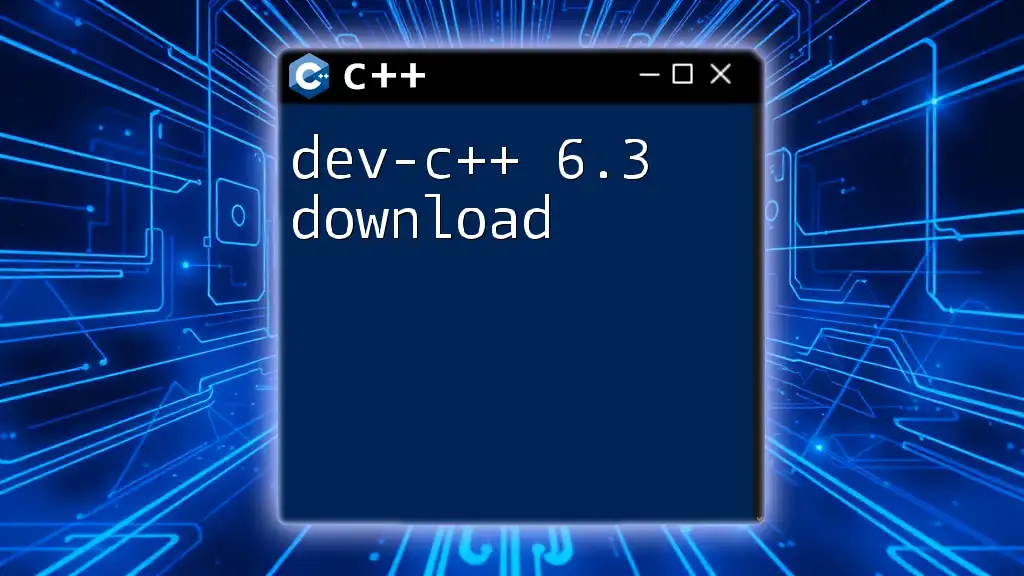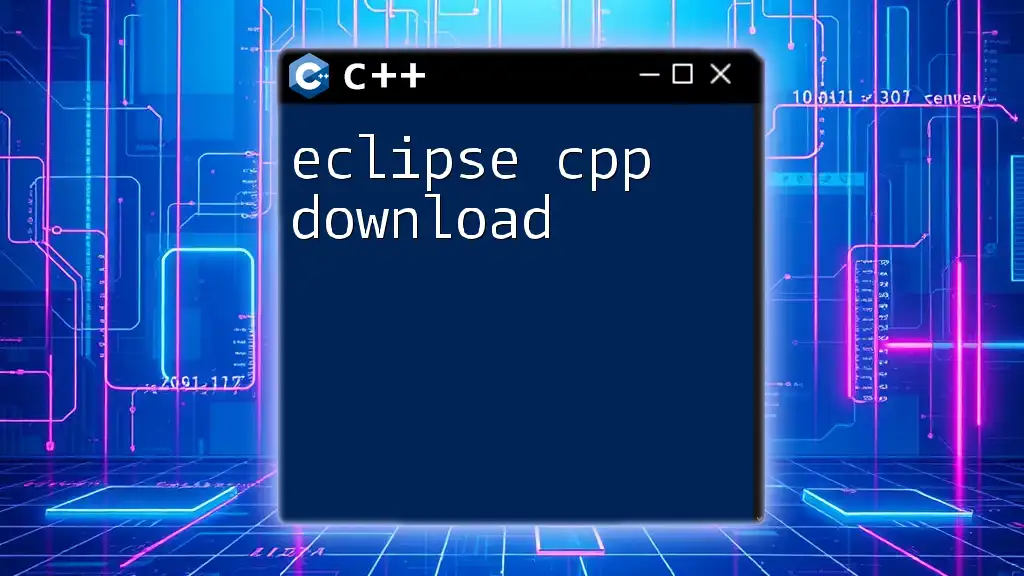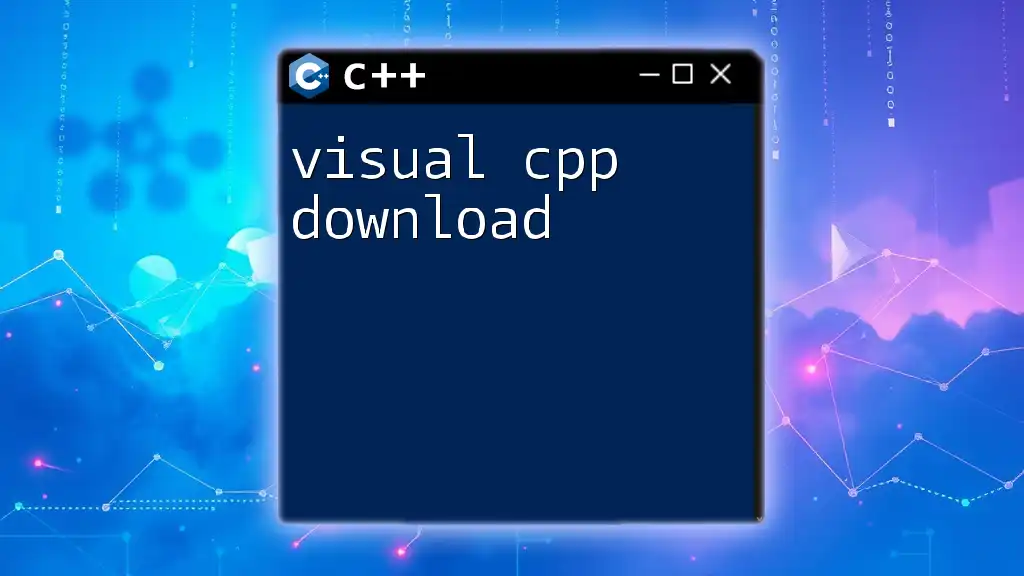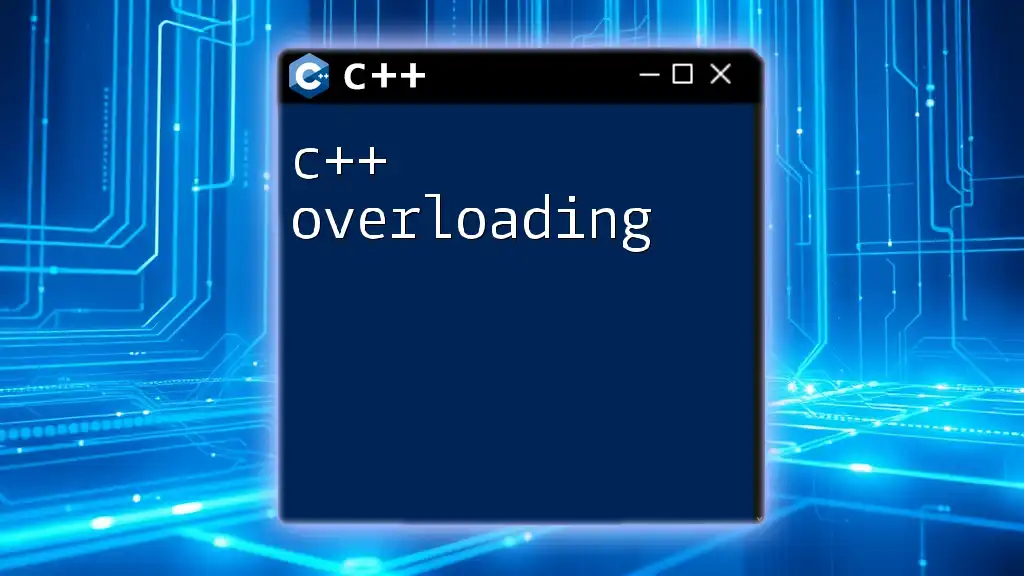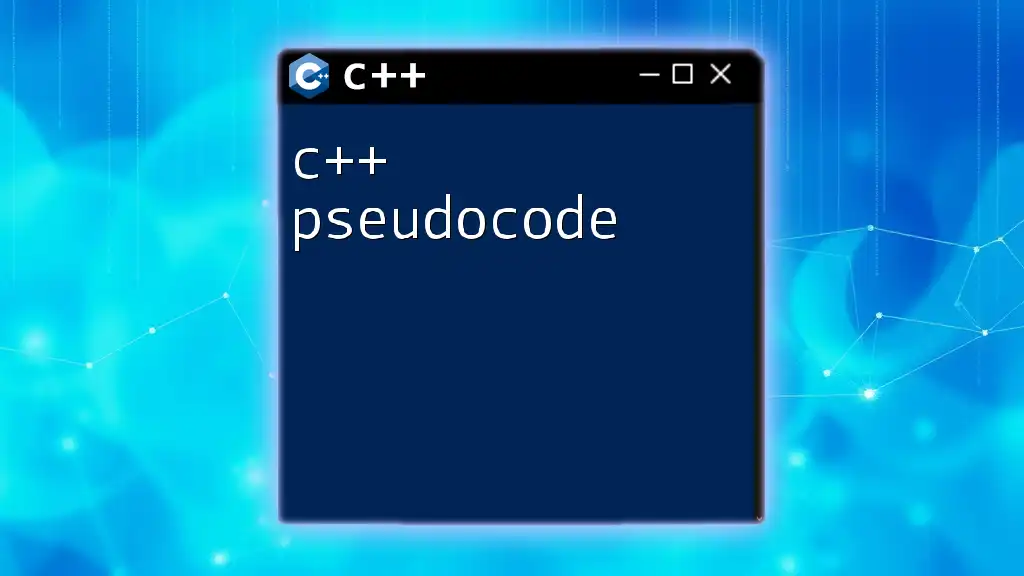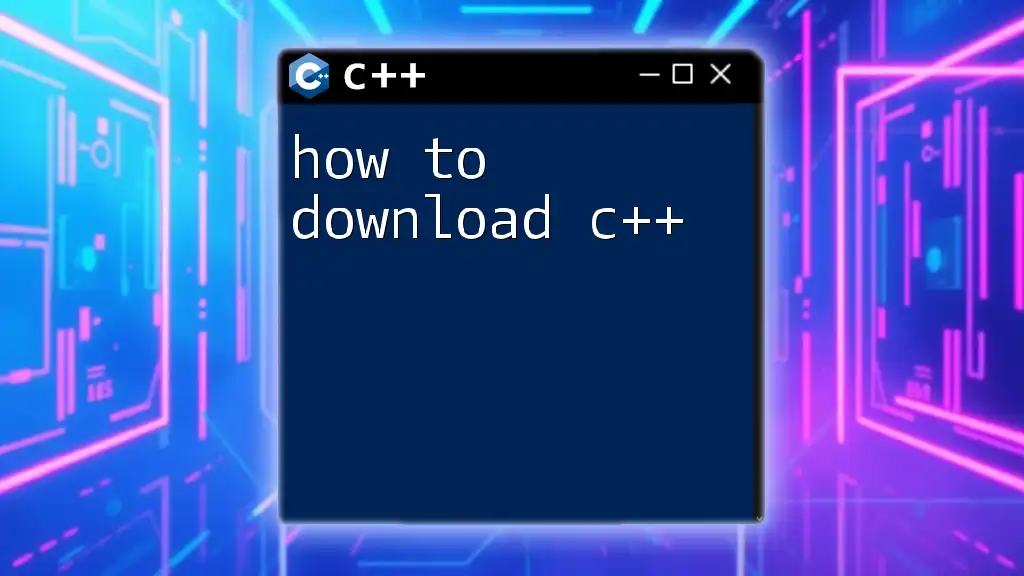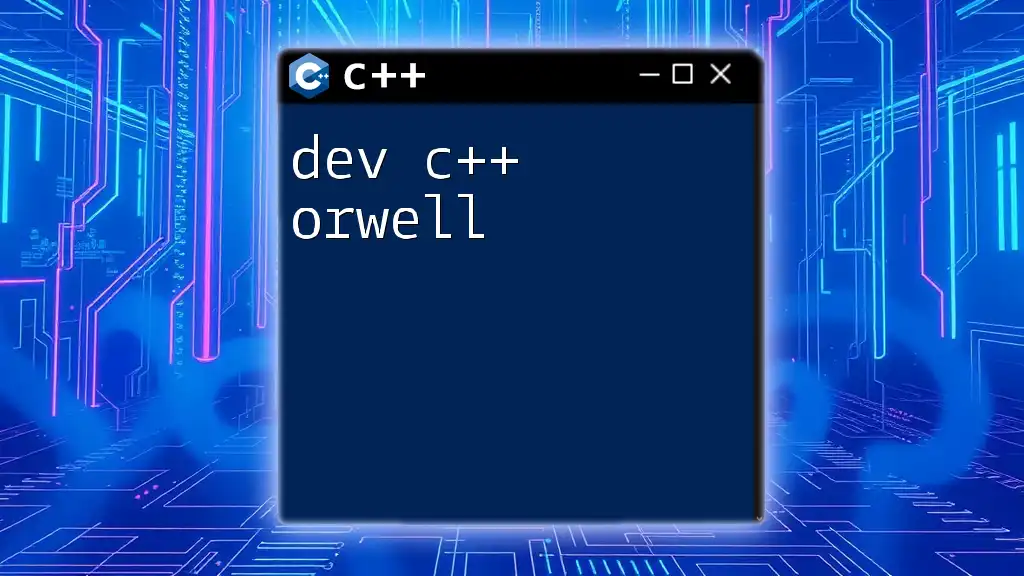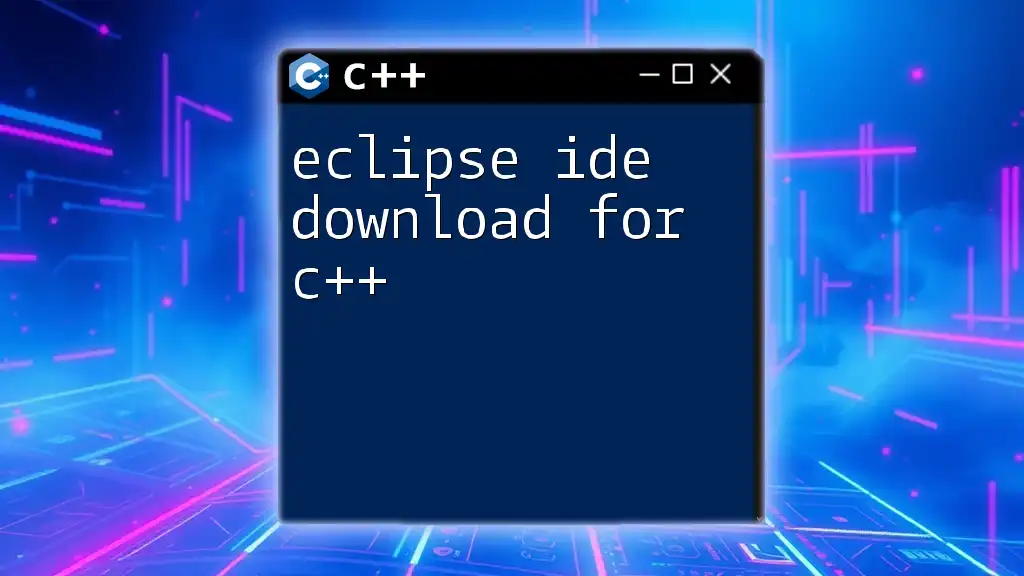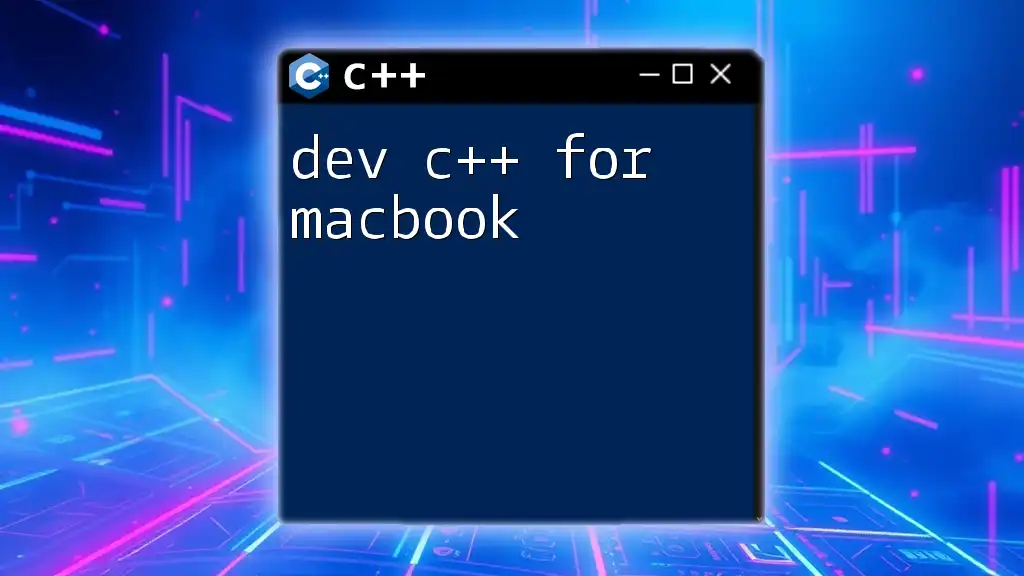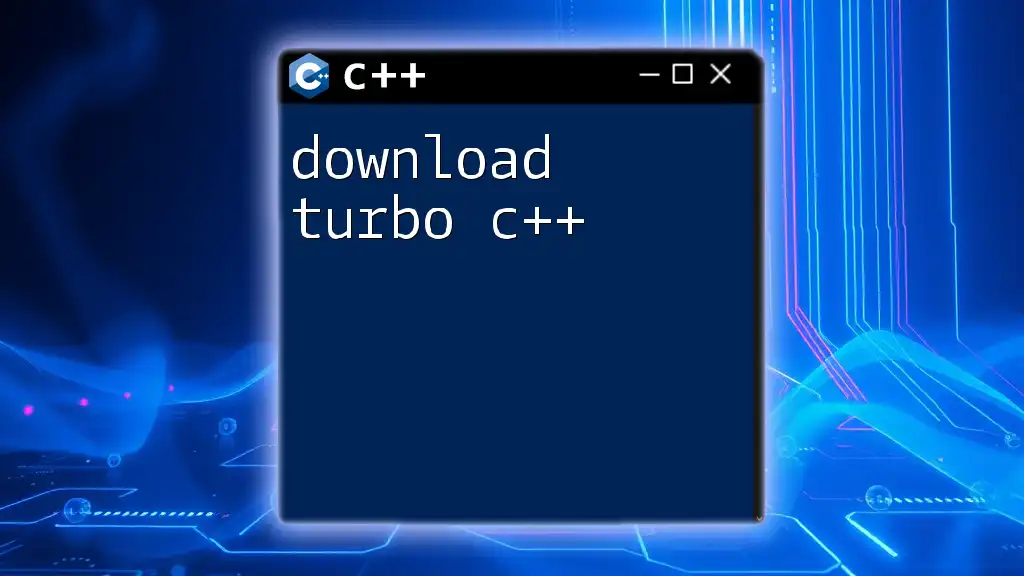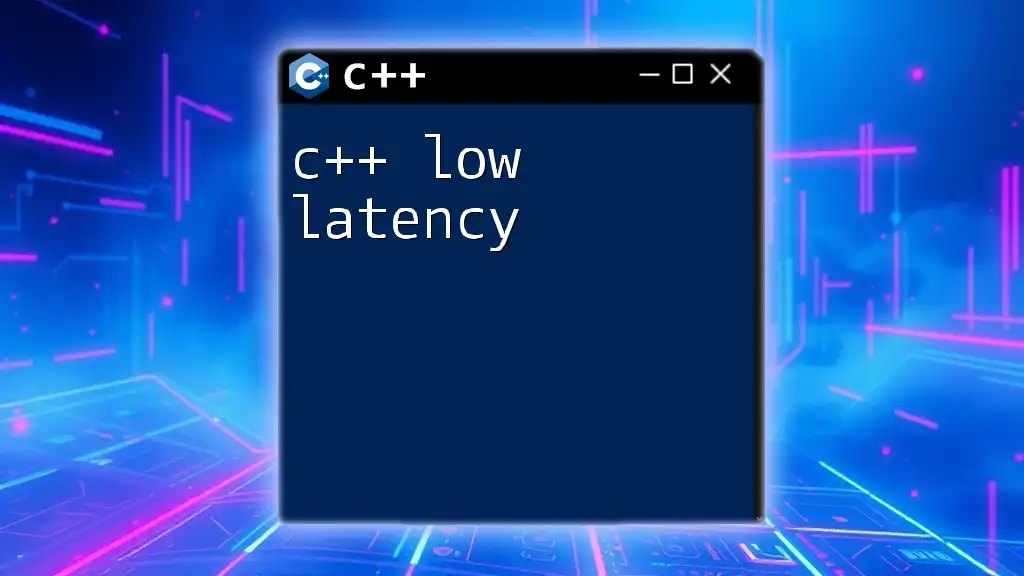To download Dev-C++ 6.3, visit the official source or trusted software repository, where you can find the installation package for this popular C++ integrated development environment (IDE). Here's an example of a simple C++ program to get you started:
#include <iostream>
using namespace std;
int main() {
cout << "Hello, World!" << endl;
return 0;
}
Why Choose Dev-C++ 6.3?
Dev-C++ has established itself as a reliable Integrated Development Environment (IDE) for C++ programming. One of its key advantages is that it is open source and free to use, making it accessible for both students and professionals. Unlike many IDEs that come with expensive licenses, Dev-C++ provides a cost-effective solution while offering robust features.
Furthermore, its user-friendly interface makes it ideal for beginners. For those who are just venturing into the world of programming, Dev-C++ offers a straightforward setup without overwhelming complexity. It effectively streamlines the coding experience.
Dev-C++ 6.3 supports various C++ standards, including C++11, C++14, and C++17. As a result, it enables developers to utilize the latest features and functionalities of the language. A simple example of using C++11 features is:
#include <iostream>
#include <vector>
int main() {
std::vector<int> numbers = {1, 2, 3, 4};
for (const auto& number : numbers) {
std::cout << number << " ";
}
return 0;
}
This brief code snippet demonstrates how modern C++ syntax can be utilized effectively in Dev-C++.
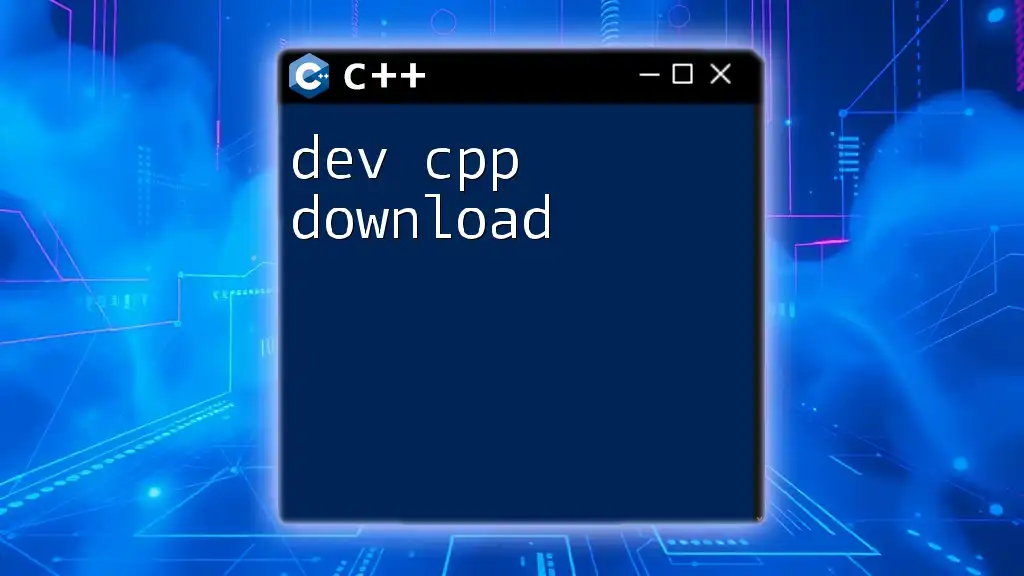
System Requirements
Before initiating the dev-c++ 6.3 download, it’s essential to ensure your system meets the necessary requirements. The minimum hardware specs for running Dev-C++ smoothly include:
- Processor: Intel Pentium 4 or equivalent
- RAM: At least 1 GB (2 GB or more recommended)
- Disk Space: A minimum of 100 MB of free space
Dev-C++ primarily supports Windows operating systems. It’s compatible with Windows 7, 8, 8.1, and 10, providing a versatile solution across multiple versions. Moreover, users should be aware that it runs optimally on both 32-bit and 64-bit versions of Windows.
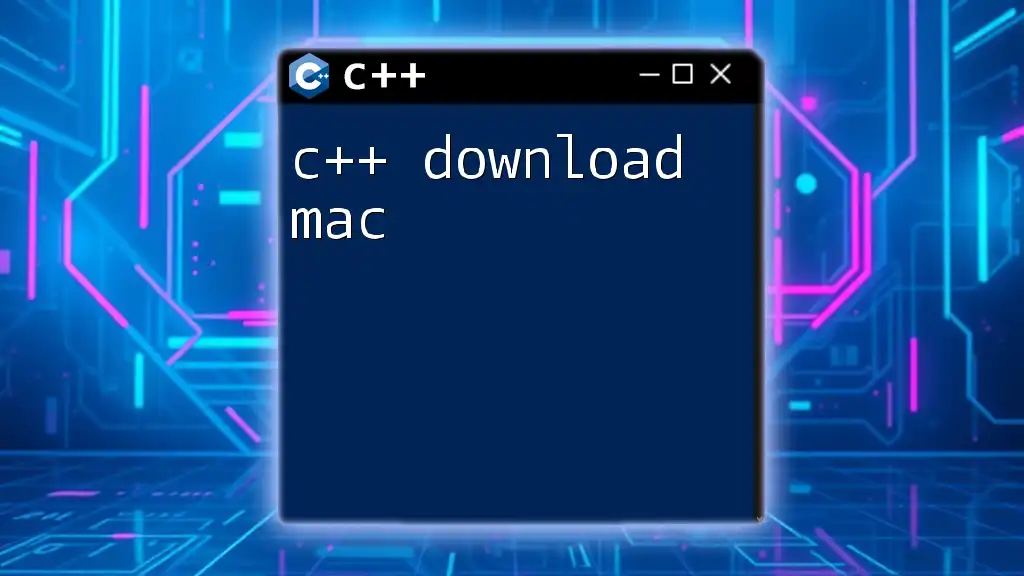
Downloading Dev-C++ 6.3
When searching for the dev-c++ 6.3 download, it’s crucial to obtain the software from official or trusted sources to ensure you’re getting a safe version that is free of malware. The primary source for downloading Dev-C++ is its official website hosted by Bloodshed Software.
Here’s the link to the official website: [Bloodshed Dev-C++](http://www.bloodshed.net/devcpp.html)
For those who might consider alternative download locations, popular software download platforms like SourceForge or GitHub often host the installer as well. However, caution is advised when downloading software from third-party sources, as they may not always guarantee the latest or safest versions.
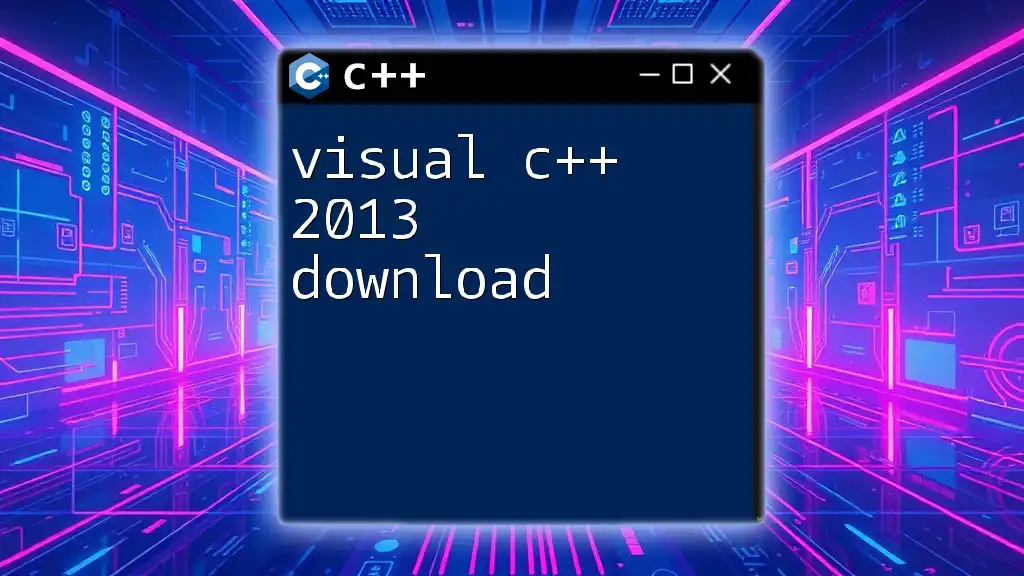
Installation Process
The process of installing Dev-C++ is straightforward. Once you've successfully downloaded the installer, follow these steps:
-
Run the Installer: Locate the downloaded file and double-click it to launch the installation wizard. This initial step typically sets up the installer.
-
Follow Installation Prompts: You’ll be guided through various setup options. Accept the default settings unless you have specific preferences.
-
Configuration Settings: During the installation, you might be prompted to choose installation directories or additional components. It’s advisable to stick with the recommended settings unless you have specific needs.
For users who prefer to install via command line, you can navigate to the directory of the installer and run:
start devcpp-6.3.exe
Once the installation is complete, you may need to configure the compiler if it hasn’t been automatically set up.
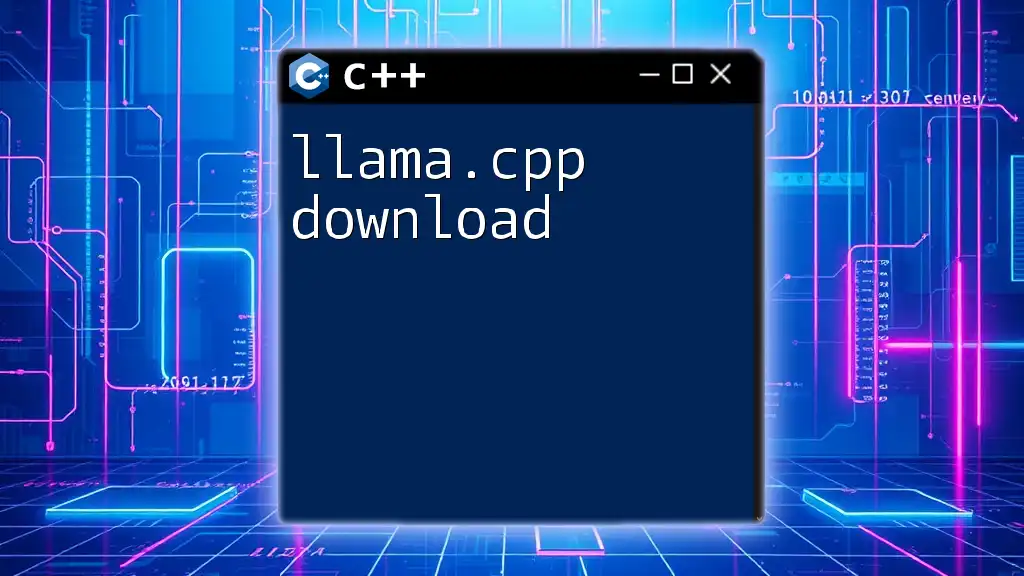
Post-Installation Configuration
After installing Dev-C++, it’s essential to configure the compiler to ensure everything works seamlessly. Here’s how you can set it up:
- Open Dev-C++ and navigate to the menu bar.
- Click on Tools and select Compiler Options from the dropdown.
- In the Compiler settings window, you can adjust paths and settings to suit your preferences. Be sure to ensure compatibility with your system’s architecture (32-bit or 64-bit).
It’s also a good idea to run a simple test program to confirm that everything is functioning correctly. A typical “Hello, World!” program is ideal for this setup:
#include <iostream>
int main() {
std::cout << "Hello, World!" << std::endl;
return 0;
}
After writing this code, compile and run it to verify that the IDE and compiler are set up properly.
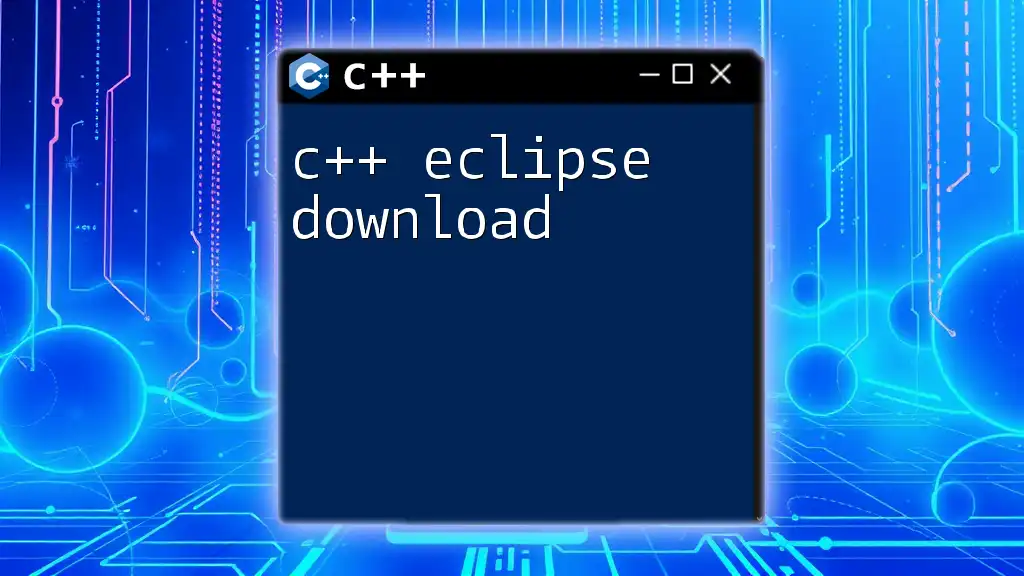
Features of Dev-C++ 6.3
Dev-C++ 6.3 comes packed with numerous features that enhance the coding experience. One standout aspect is its enhanced code editor, which supports syntax highlighting and intelligent code completion. This means as you type, the IDE will suggest possible completions for functions and variables, making coding more efficient.
For example, if you start typing `std::vec`, it may suggest `std::vector`, making it easier to write code quickly and with fewer errors.
Additionally, Dev-C++ includes robust debugging tools that allow you to set breakpoints within your code. This helps you trace and analyze the flow of your program during execution, making it easier to identify bugs. Here’s how to set a breakpoint in your code:
- Click in the left margin next to the line where you want to pause execution.
- The line will be highlighted, and you can then run your code in debug mode.
Furthermore, Dev-C++ allows for efficient project management. You can create new projects and organize files easily, which is vital for larger coding endeavors. To start a new project, navigate to File > New > Project, and follow the prompts to set up your workspace.
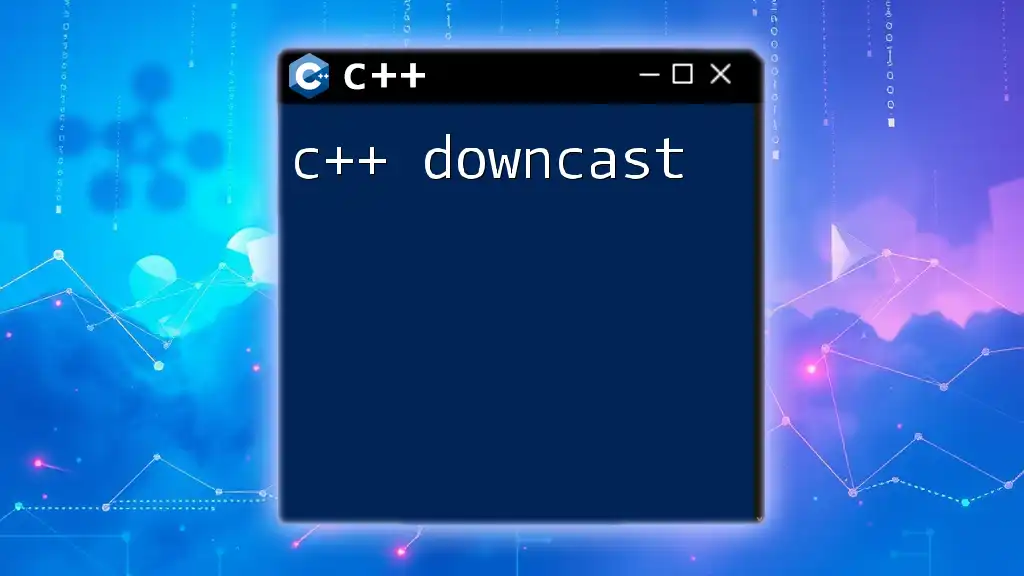
Troubleshooting Common Issues
Sometimes, problems may arise during installation or use of the IDE. Below are common issues and solutions to help you troubleshoot effectively.
Installation Errors
If you encounter errors during installation, ensure that your system meets all requirements. If the installer fails, try disabling antivirus software temporarily, as it may mistakenly block the installation process.
Compiler Issues
Compiler errors are common, especially for new users. If you encounter errors, carefully review your code for typos or syntax errors. Understanding the error messages is crucial; consult the documentation available within Dev-C++ or online resources for explanations.
A common compile-time error could look like this:
int main() {
std::cout << "Hello, World!" << endl; // Error here
}
The correct usage is to replace `endl` with `std::endl` to avoid an undefined reference error. Always ensure that your code includes the proper namespace.
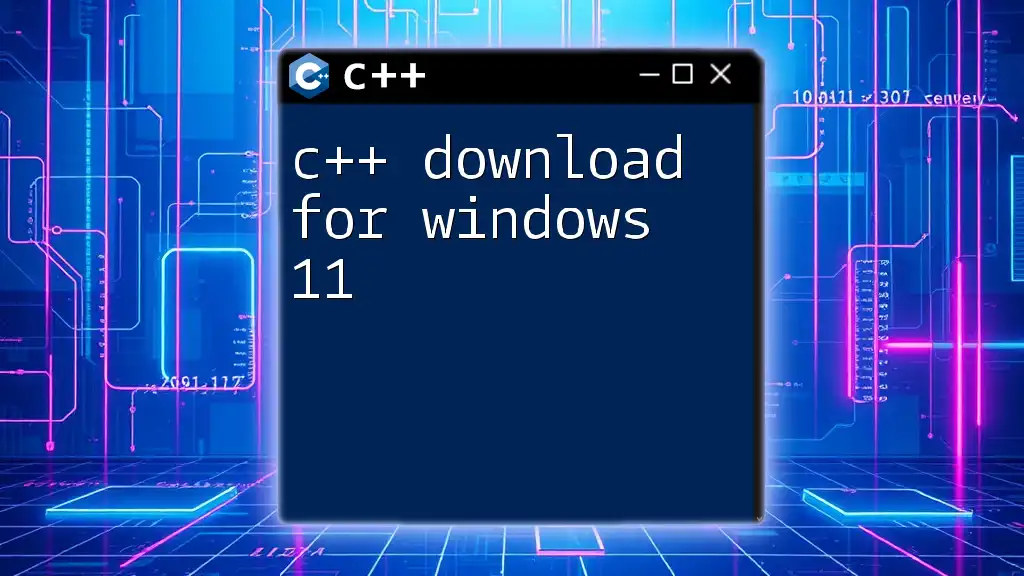
Conclusion
In summary, Dev-C++ 6.3 is an excellent choice for those looking to dive into C++ programming. Its combination of a user-friendly interface, robust features, and compatibility with various C++ standards make it a prime candidate for beginners and experienced developers alike. By following this guide for your dev-c++ 6.3 download, installation, and initial configuration, you’ll be well on your way to starting your coding journey.
Additional Resources
As you explore Dev-C++, consider checking out various tutorials and communities online that focus on C++. Engaging with these resources can provide valuable insights and help you strengthen your programming skills. If you’re interested in continuing your learning, look for upcoming courses or workshops that delve deeper into the world of C++.
Happy coding!

